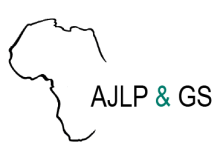Resource information
According to a 2008 World Bank Report, Uganda is among the countries with the youngest population and the highest youth unemployment rate of 83%. During the reading of the 2011/2012 budget of Uganda, the then Minister of Finance recognized that because of the high levels of unemployment, the Ugandan economy can only absorb 20% of its youth. Owing to this, this demographic has often been described as a ticking time bomb waiting to explode.The above notwithstanding, Uganda is blessed with an abundance of land and land-based resources which remain largely underutilized. Specifically, land held under Customary tenure accounts for 80% of all land held in the country. Land governed under customary tenure has often been labeled a hindrance to youth accessibility of land and the resources held therein because of reasons that are well elaborated in herein.This paper seeks to rebut these arguments and discuss how in fact customary tenure may be the avenue through which youth can access land for socio-economic empowerment.


